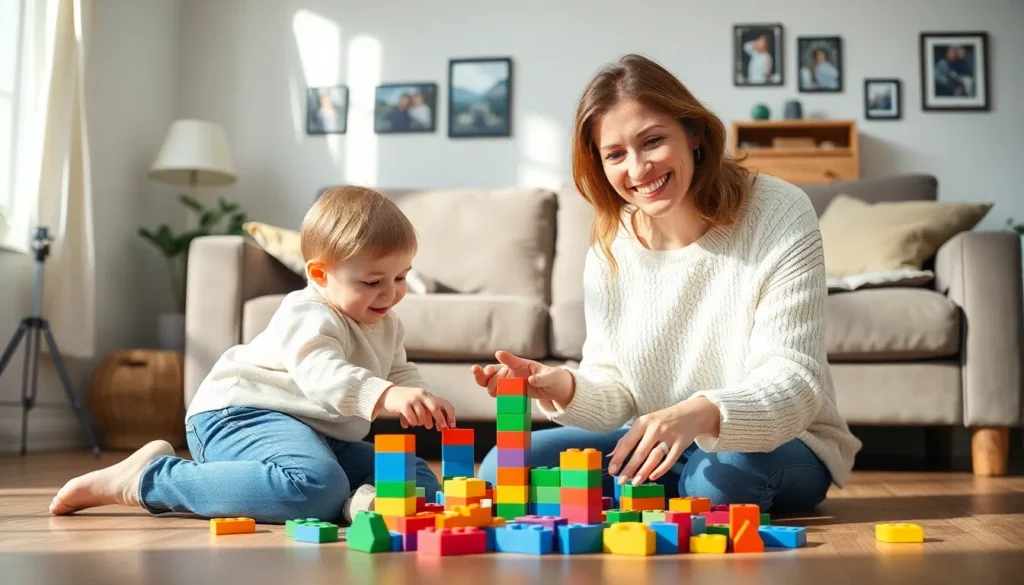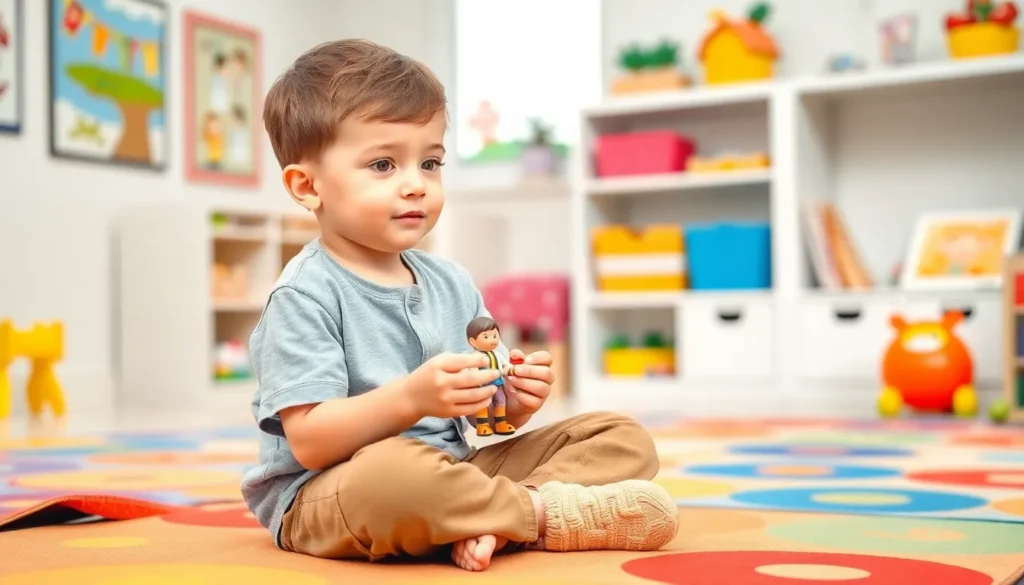Table of Contents
ToggleIn a world where kids seem to have an endless supply of energy and an uncanny ability to push every button imaginable, understanding child psychology becomes essential. It’s not just about deciphering their latest obsession with dinosaurs or why they insist on wearing pajamas to the grocery store. Child psych dives deep into the minds of these little beings, revealing the secrets behind their thoughts, emotions, and behaviors.
Imagine having a cheat sheet to navigate the whimsical world of childhood! With insights from child psychology, parents and educators can foster healthier relationships and create environments where kids thrive. So buckle up for a journey into the fascinating realm of child psych, where laughter meets learning and every tantrum has a tale to tell.
Understanding Child Psych
Child psychology delves into the mental, emotional, and social development of children. This field provides crucial insights that guide parents and educators in fostering children’s well-being.
What Is Child Psych?
Child psychology encompasses the study of behavior and development in children. Professionals in this area analyze how childhood experiences shape emotional and cognitive growth. Principles of child development inform assessments, therapies, and interventions, addressing behavioral issues and emotional challenges. Practitioners utilize various techniques, including play therapy and cognitive behavioral therapy, tailored for children. Understanding communication styles aids in building effective strategies for support.
Importance of Child Psych Services
Child psych services play a vital role in promoting healthy development. Access to these services helps children with emotional struggles, behavioral issues, or developmental delays. Therapists often create individualized treatment plans addressing specific needs. Early intervention benefits children’s social skills and emotional regulation, leading to better outcomes later in life. Support from trained professionals empowers parents in fostering healthier environments. Additionally, these services contribute to reducing stigma surrounding mental health in children and families alike.
Common Child Psych Issues

Understanding common child psych issues enables parents and educators to provide better support. Insight into these challenges fosters empathy, facilitating a deeper connection with children.
Anxiety Disorders
Anxiety disorders rank among the most prevalent issues in child psychology. They manifest as excessive worry, fear, or stress, often affecting daily activities and school performance. Symptoms such as restlessness, irritability, and sleep disturbances frequently indicate underlying anxiety. Evidence suggests that cognitive behavioral therapy effectively reduces anxiety symptoms, helping children tackle their fears directly. Availability of early intervention and supportive environments fosters resilience, empowering children to manage anxiety.
Behavioral Problems
Behavioral problems encompass a range of conduct issues, including aggression, defiance, or hyperactivity. These behaviors disrupt a child’s social interactions and learning processes. Children displaying such problems might struggle with self-regulation and impulse control. Various therapeutic approaches, including parent training and behavior modification techniques, prove effective in addressing these challenges. Consistent reinforcement of positive behavior rewards children, encouraging healthier interactions.
Developmental Delays
Developmental delays refer to slower-than-typical progress in physical, cognitive, or social skills. Signs often include difficulties in communication, motor skills, or social interactions. Early identification is crucial, as timely interventions can significantly improve outcomes. Speech therapy and occupational therapy frequently support children facing these delays, allowing for skill enhancement. Accessing specialized resources empowers families, helping children reach their full potential.
Approaches in Child Psych
Various approaches exist in child psychology, each tailored to address specific needs and challenges unique to children. Understanding these strategies enhances the support caregivers can offer.
Cognitive Behavioral Therapy (CBT)
Cognitive Behavioral Therapy serves as a structured approach, specifically targeting thought patterns. Through CBT, children learn to identify negative thoughts and replace them with healthier ones. This method proves effective in treating anxiety disorders and behavioral problems, allowing children to develop coping mechanisms for stress. Practitioners often involve parents in sessions to reinforce strategies at home. As a result, children gain practical skills for managing emotions and improving overall mental health.
Play Therapy
Play Therapy utilizes play as a means for children to express feelings and experiences non-verbally. This approach creates a safe space where children can communicate their thoughts through toys and games. Therapists observe interactions, helping them understand underlying issues like trauma or anxiety. Utilizing this method offers insight into a child’s emotional world while fostering self-expression. Through engaging in play, children can process complex emotions, making it a highly effective therapeutic option.
Family Therapy
Family Therapy focuses on improving dynamics and communication among family members. Involving the whole family addresses issues that affect a child’s behavior and emotional well-being. Through guided discussions, family therapists help identify patterns that lead to conflicts or misunderstandings. As family members interact during sessions, they learn respectful communication techniques and conflict resolution strategies. This collaborative approach strengthens family bonds, promoting a healthier environment for children to thrive emotionally and socially.
Role of Parents in Child Psych
Parents play a crucial role in a child’s psychological well-being. Their involvement significantly impacts the effectiveness of therapeutic interventions.
Supporting Therapy at Home
Supporting therapy at home reinforces the strategies learned during sessions. Implementing coping techniques enhances emotional regulation. Parents can create a safe space for children to express themselves freely. Establishing consistent routines builds a sense of security. Engaging in open conversations about feelings fosters trust. Activities such as reading or playing provide opportunities for connection. Monitoring progress enables adjustments in approaches as needed. Encouraging children to practice newly acquired skills boosts confidence and resilience.
Recognizing Signs of Distress
Parents must stay vigilant for signs of distress in their children. Changes in behavior often indicate underlying issues, such as withdrawal or irritability. Difficulties in school performance might signal emotional struggles. Attention to sleep patterns and appetite can reveal stress levels. Frequent complaints about physical ailments may also be a warning sign. Engaging in direct conversations about feelings offers insight into their emotional state. Observing social interactions helps detect anxiety or fear responses. Early recognition allows parents to seek help promptly, ensuring timely support and intervention.
Understanding child psychology is crucial for fostering healthy emotional and social development in children. By recognizing the signs of distress and engaging in supportive practices, parents and educators can create a nurturing environment that encourages growth. The various therapeutic approaches available offer tailored solutions to address specific challenges, ensuring that children receive the guidance they need.
As awareness of child psych continues to grow, so does the opportunity to reduce stigma surrounding mental health. Empowering parents with knowledge and resources enhances their ability to support their children effectively. Investing in child psychology not only benefits individual children but also strengthens families and communities as a whole.







